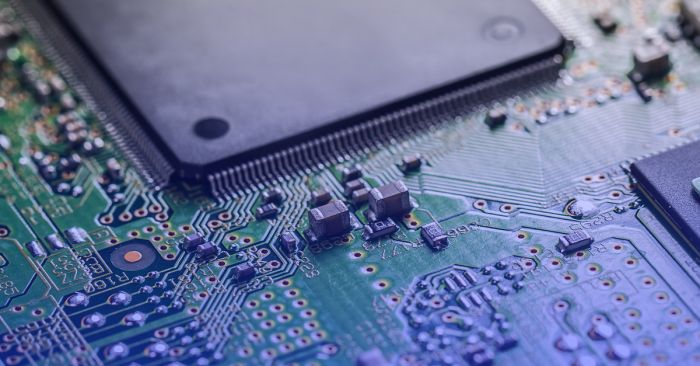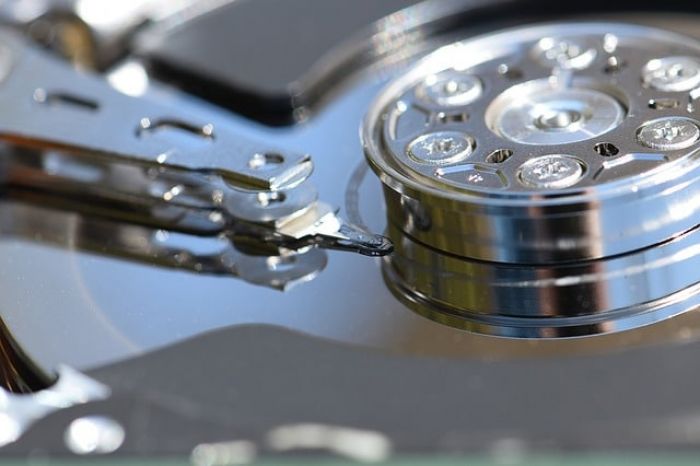Technology
5 min read
How Businesses Can Safely Dispose of Any Physical Data


Physical data disposal sounds like a complete no-brainer, right? Well, throw it away, and the problem is solved. Not quite. As a matter of fact, how you handle your sensitive information, whether it be paper documents or electronic media, can make all the difference. Proper data destruction is the key to protecting your business, clients, and employees. If you do not do this correctly, you are well on your way to data breaches, identity theft, and even large fines. So, how do companies safely dispose of physical data? Let's dive in.
Physical data is anything tangible that holds sensitive information. Just think about all those employee files, customer records, financial statements, and secondhand hard drives lying around. If these aren't disposed of well, they tend to fall into the wrong hands. It's not about clearing up space but about securing trust and security.
Physical information includes more than just documents. It includes old hardware, backup tapes, and even outdated USB drives. All of these may contain sensitive information that could compromise your business if they're improperly discarded. Let's take a look at what's needed to safely say goodbye to them.
First things first: compliance. Different countries and industries have different laws regarding data disposal. For instance, does anyone know what GDPR is in Europe or HIPAA in the United States? It is a prescription that dictates how long data must be maintained and how it needs to be destroyed. Severe penalties, along with damage to one's reputation, accompany this.
It is prudent to be at least familiar with certain data protection laws that may affect the region and/or industry to which you belong. It will keep you compliant and heighten your commitment to the security of personal data. Even small businesses might be saved from some sudden legal or other problems that might arise.

Now that we understand why physical data needs to be disposed of securely let's discuss methods. What are the best ways to ensure that data is completely gone and does not risk resurfacing?
Shredding: This is probably the first thing that comes to mind when thinking about secure disposal. A high-security shredder can shred confidential documents into pieces so small that they cannot be read. Crosscut shredders, which cut the paper in two directions, are a step better and add an extra degree of security. If the volume is bulkier, professional shredding services that specialize in secure document destruction can be contracted.
Incineration: This may sound extreme, but incineration will surely rid one of sensitive information. You may not have an incinerator installed in your office, but there are services for that. Incineration works well with paper and sometimes old credit cards and magnetic tapes.
Degaussing and Disk Wiping: When it comes to electronic data, things become just a little more technical. One process is called degaussing, which is typically done with magnets to interfere with and damage the data on a hard drive or other magnetic media to make it unreadable. If you are dealing with digital files, there are tools for wiping. This is particularly handy if you plan on reusing or donating old equipment.

Third-party disposal services: Sometimes, it's just best to leave it to the pros. Certified disposal companies offer services ranging from paper shredding to secure electronic media disposal. Look for certifications such as NAID (the National Association for Information Destruction) to ensure the service provided will maintain high standards in data protection.
A clear data disposal policy is not reserved for large corporations; any business would do well with such a policy. It will outline who is responsible for what, from physical data storage to proper disposal. It should define retention periods, which refer to how long one keeps documents, and classification, which refers to what documents truly are sensitive and need extra care.
Another important policy area is employee training. When all employees are aware of what happens or how to take care of something, it goes a long way in reducing or avoiding mistakes altogether. Moreover, repeating these sessions allows the importance of data security to sink deeper into your team.
It might sound like a hassle, but documenting the disposal process is an easy step that can save a lot of headaches. Think of it more like a paper trail - record the date and manner in which each piece of data was disposed of, who did it, and how it was done. This log of disposal will go a long way toward protecting your business in a court of law, proving that due diligence was taken to secure sensitive data.
If there is ever a question about a document or piece of hardware, you will have clear records to back you up. This kind of transparency promotes accountability and proves that you take data protection seriously.
Even after disposal, a few extra steps can further protect your business from data breaches:
Regular Auditing: Every so often, look over your disposal practices. Are there new laws to take into account? Your policy, is it still working? Periodic auditing may give that needed pad against weak spots before they become a problem.
Secure Storage Before Disposal: Store sensitive documents in a locked, restricted area until they can be destroyed. The fewer people have access, the better.
Control Access: Restrict physical data that is intended for disposal to only a few people. This will lessen the possibility of incidental leakage.
At the end of the day, physical data disposal isn't about getting rid of stuff; it's about protecting your business and everyone connected with it. By using secure methods, setting clear policies, and tracking disposal efforts, you are building a robust line of defense against data breaches.
Be the first to post comment!